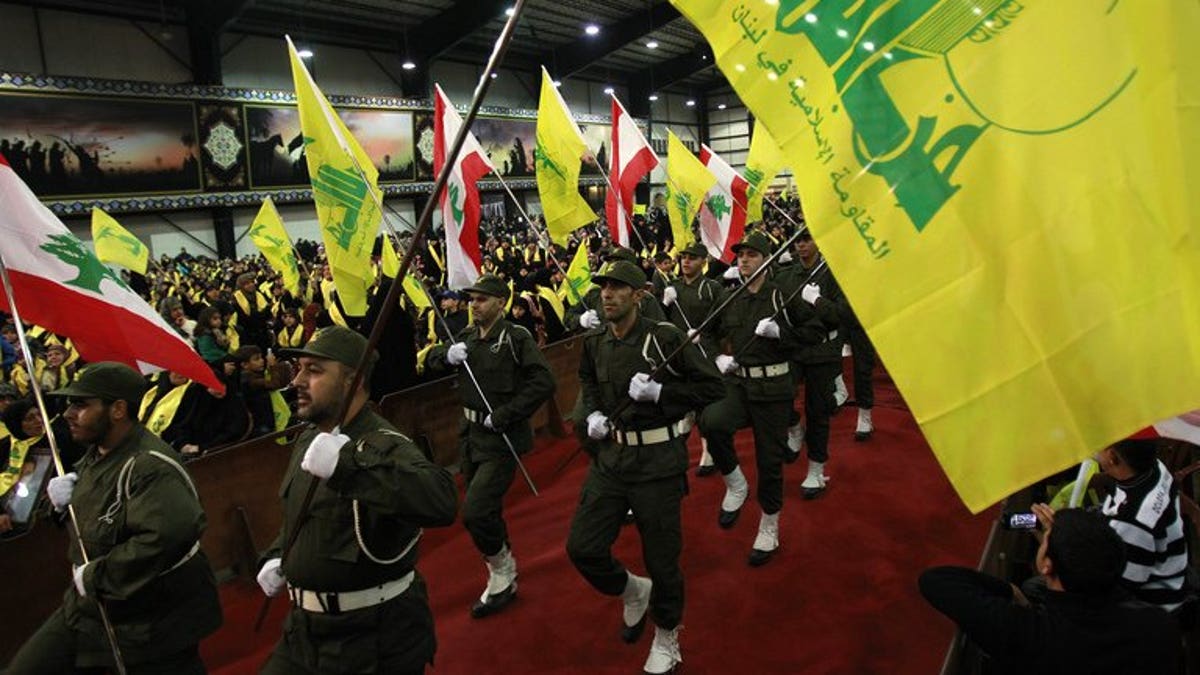
Members of Hezbollah wave the group's flag during a rally for the party's Martyrs' Day in Beirut on November 12, 2012. EU foreign ministers are likely to put the military wing of Lebanon's Hezbollah group on their blacklist of terror groups, EU diplomatic sources said Friday as the Lebanese government warned against such a step. (AFP/File)
BRUSSELS, Brussels Capital Region (AFP) – EU foreign ministers are likely to put the military wing of Lebanon's Hezbollah group on their blacklist of terror groups, EU diplomatic sources said Friday as the Lebanese government warned against such a step.
"There are still some reservations... but we are moving towards a decision on listing Hezbollah's military wing," a senior EU official said ahead of a meeting of all 28 EU foreign ministers on Monday.
The move was justified by Hezbollah's involvement in an attack against Israeli tourists in Bulgaria last year and its activities in Cyprus, the official said, but would "not impact current EU policy and engagement with Lebanon."
The official, who asked not to be named, also stressed that the military wing alone would be targeted and not Hezbollah's political organisation which is a major force in the country and was part of the outgoing Lebanese government.
On Thursday, Lebanon asked Brussels not to blacklist Hezbollah, saying the militant group was an "essential component of Lebanese society."
EU sources said Ireland and Malta were still reluctant to blacklist Hezbollah for fear of destabilising Lebanon but it appeared likely that any holdouts would go along with the majority on Monday.
"We would be surprised if some ministers stood in the way of the EU taking robust action on terrorism," another senior EU official said. "They'll need to think quite carefully before blocking consensus."
Asked if Hezbollah's intervention in support of President Bashar al-Assad against rebel forces seeking his ouster in Syria had changed opinion, the first senior official insisted that was "another issue completely."
The decision was "solely driven" by concerns over terrorist actions in Europe, he added.
Unanimous backing from the 28 EU states is required to place a group or persons on the bloc's terrorist blacklist, making them subject to an asset freeze and travel ban.
The United States, Canada, Australia, Britain and the Netherlands have all blacklisted Hezbollah as a terror group.
Last July 18, five Israeli tourists and the Bulgarian driver of their bus were killed in a bombing at Burgas airport in the deadliest attack on Israelis abroad since 2004.
"There are clear links to Hezbollah behind this attack," Bulgaria's Interior Minister Tsvetlin Yovchev said Thursday, citing new information from foreign intelligence services.
